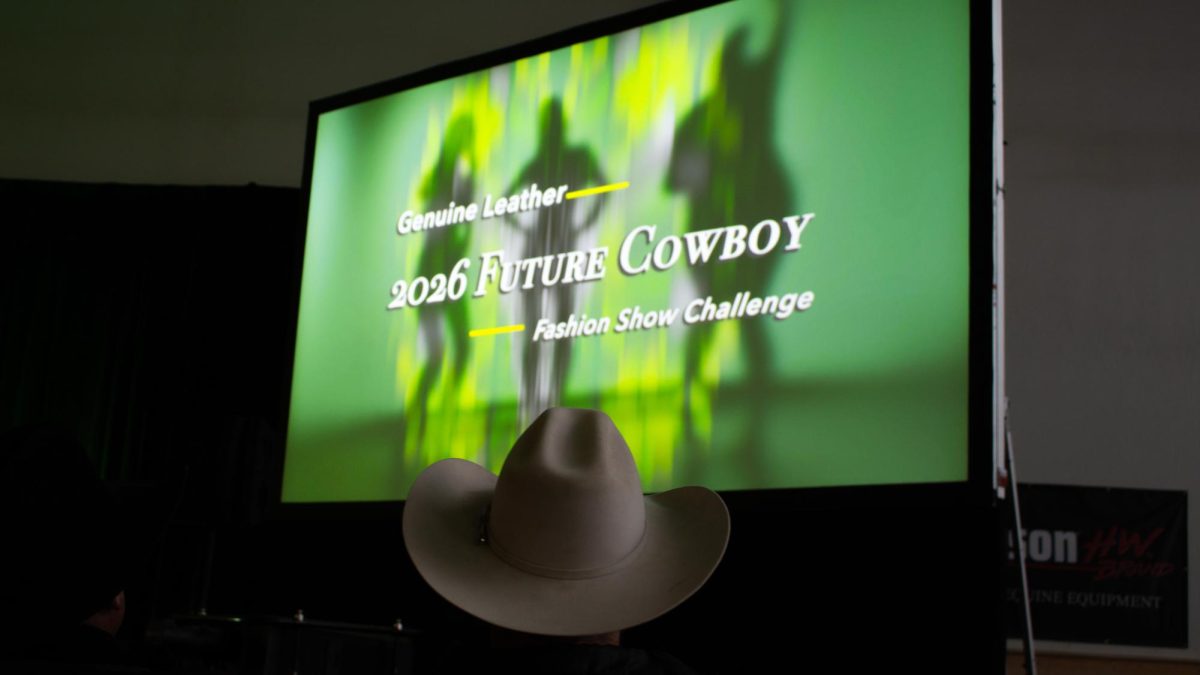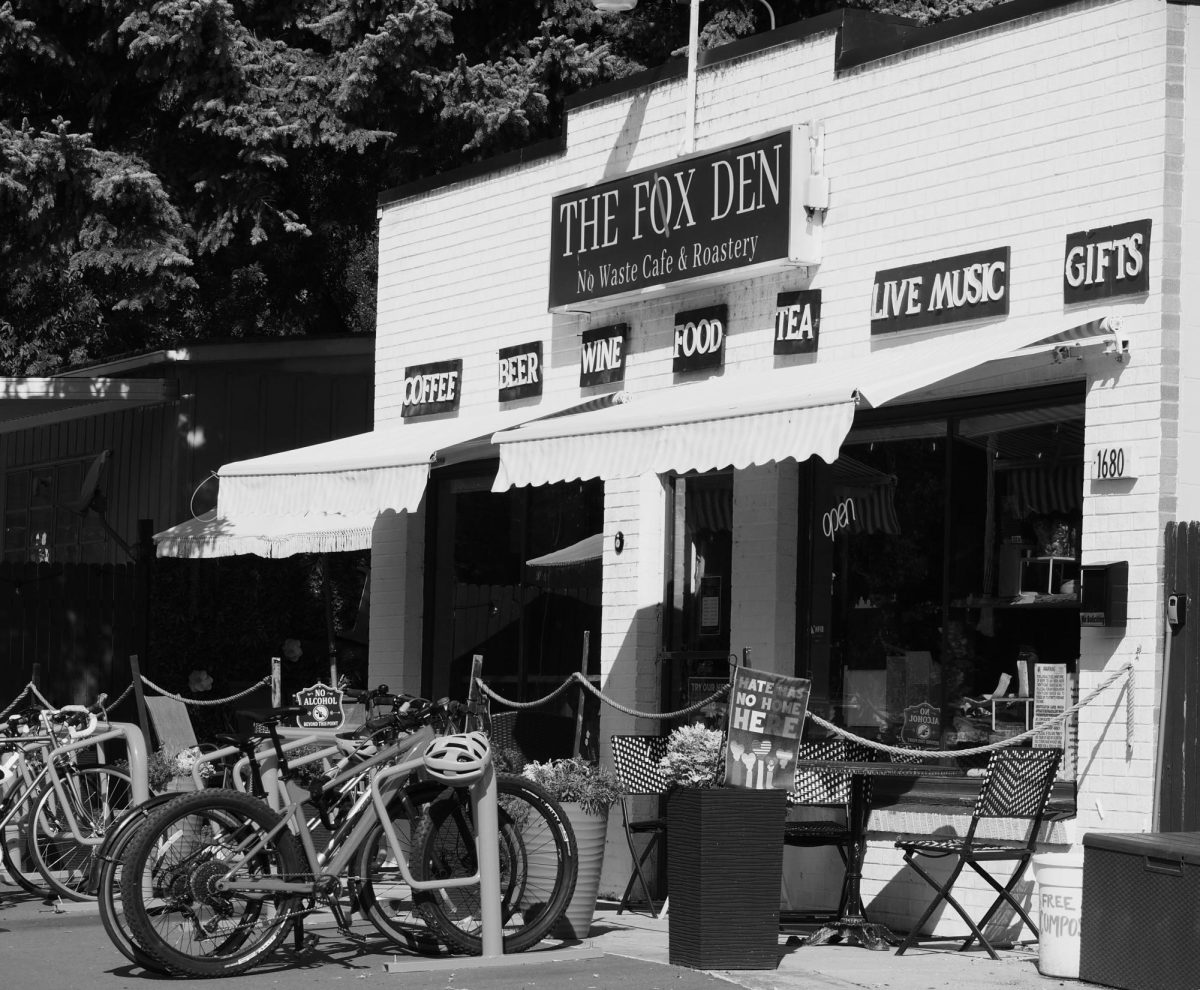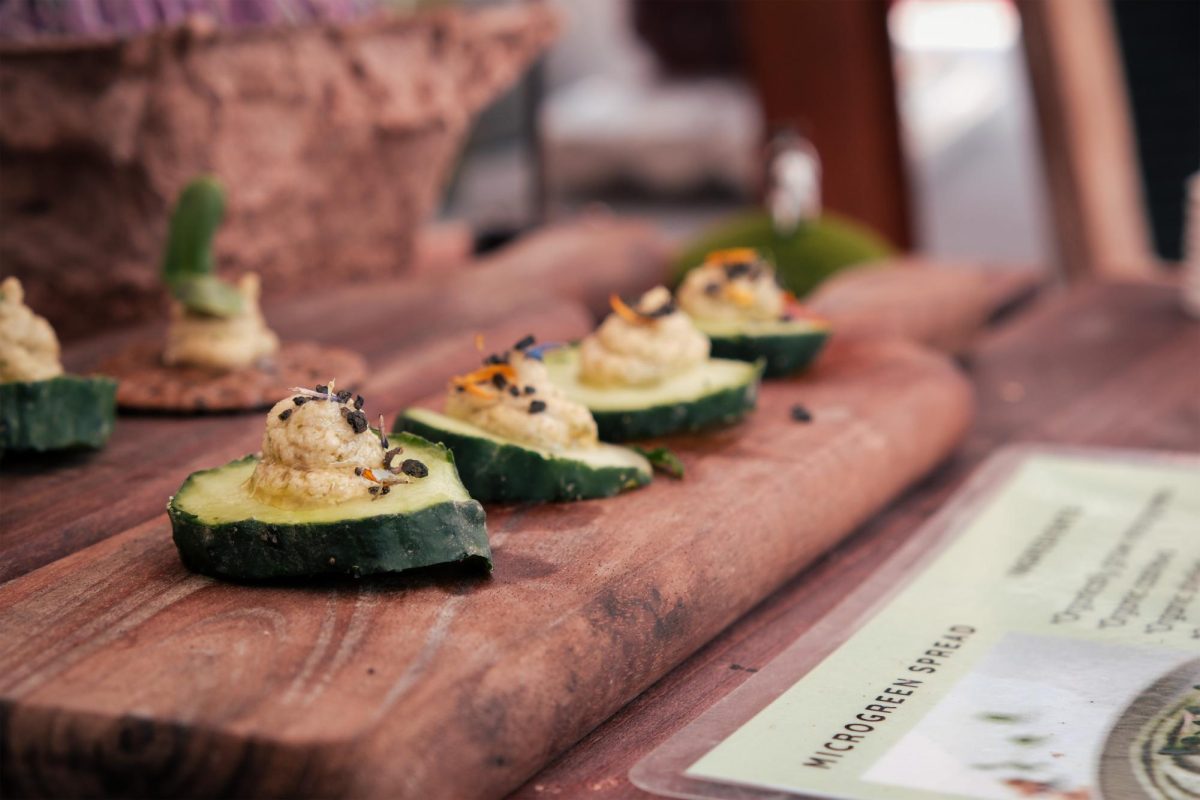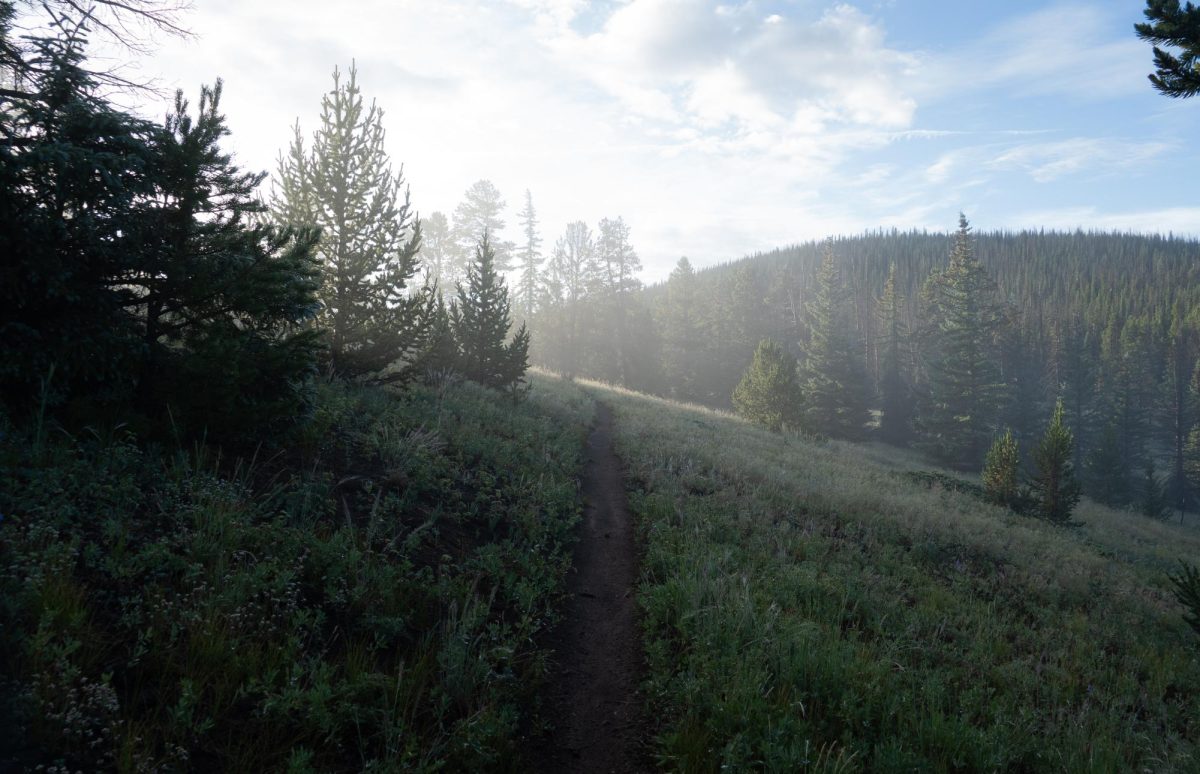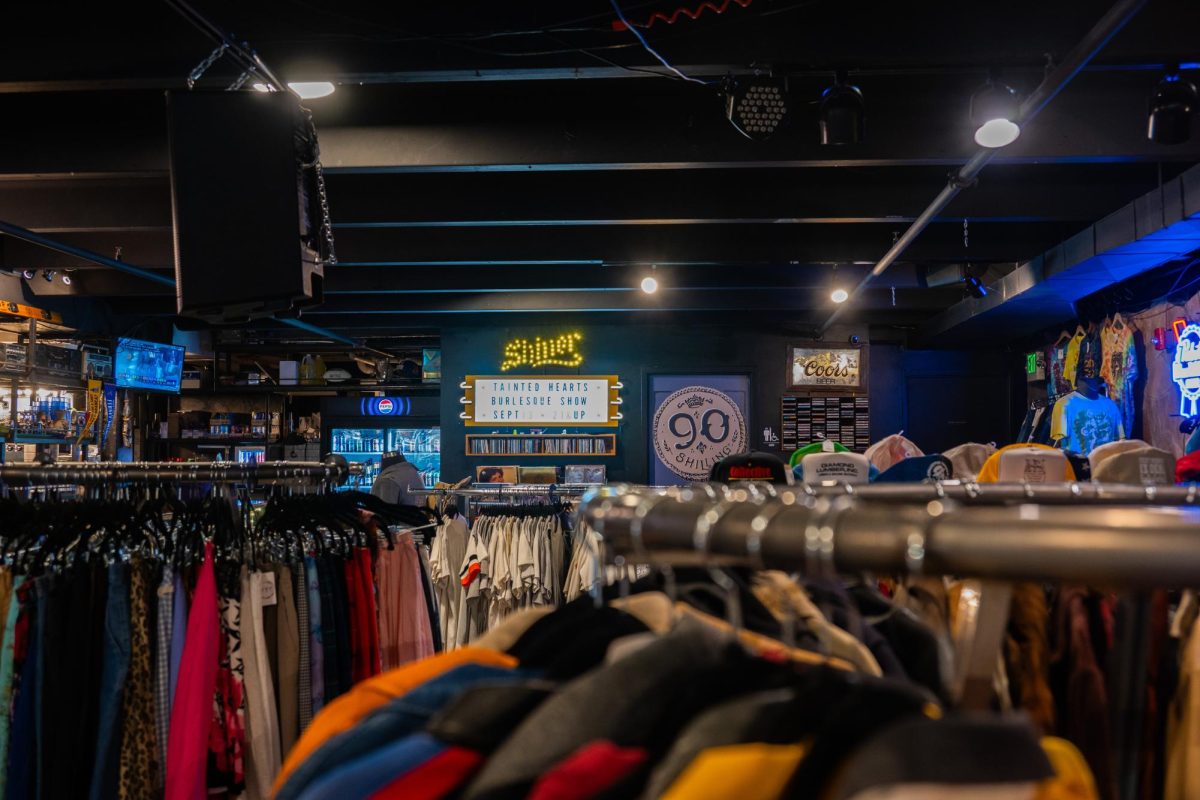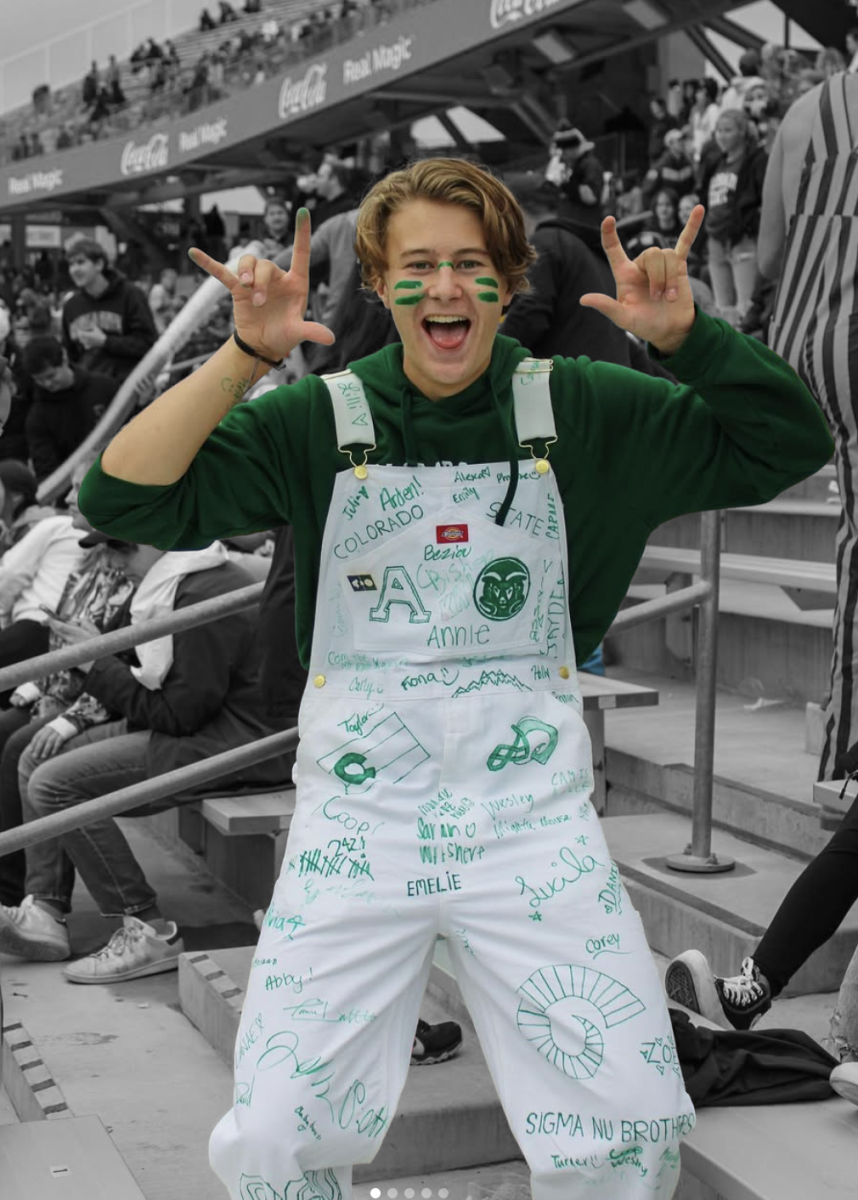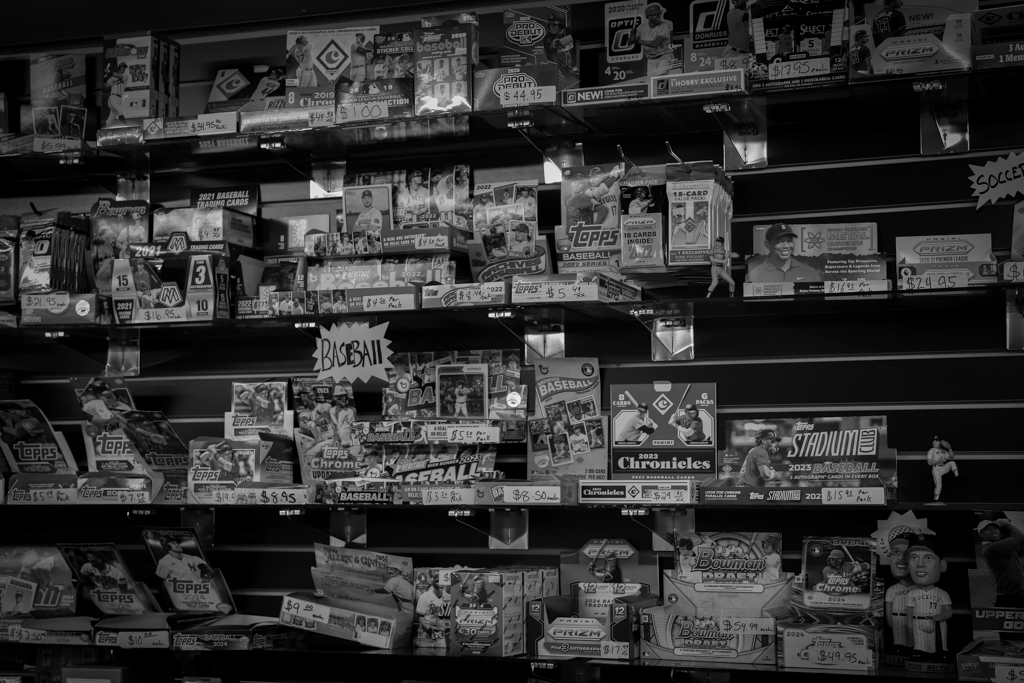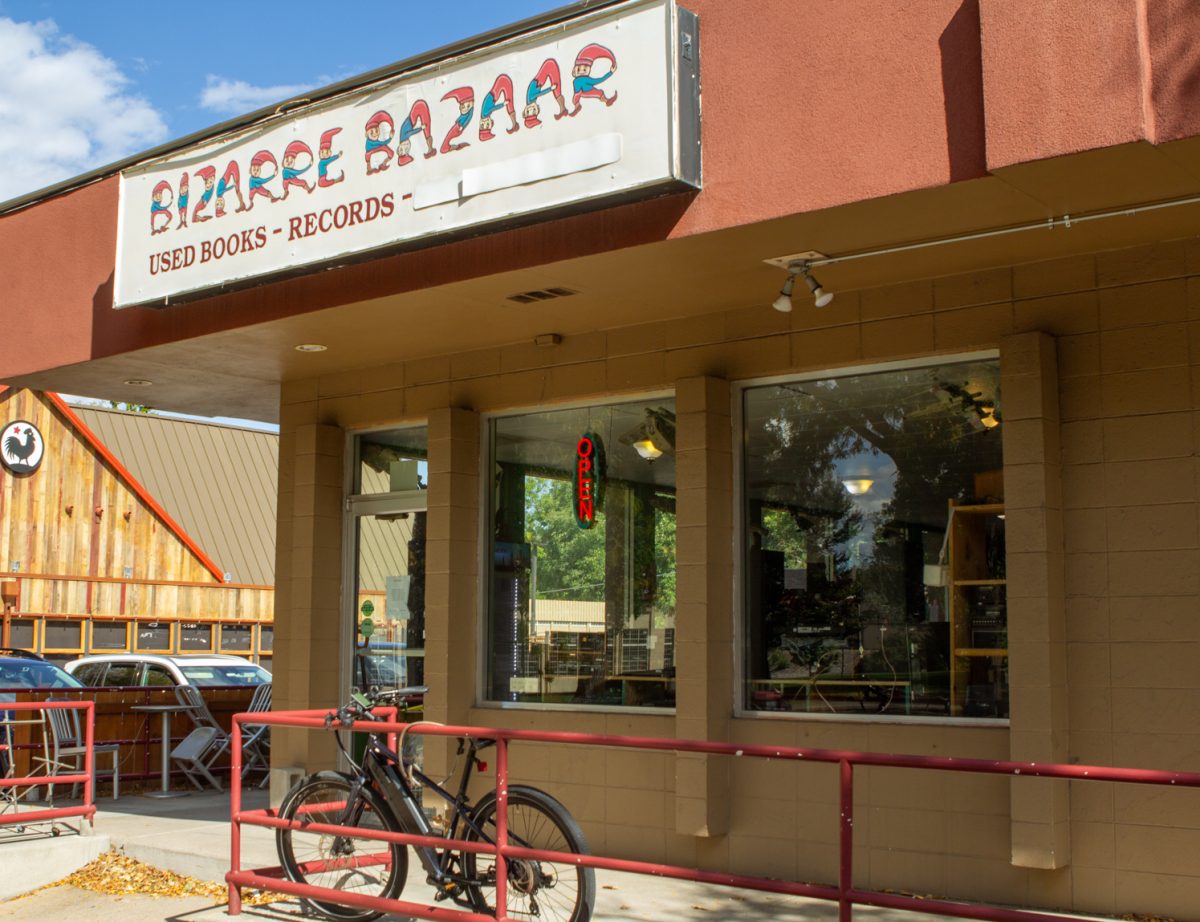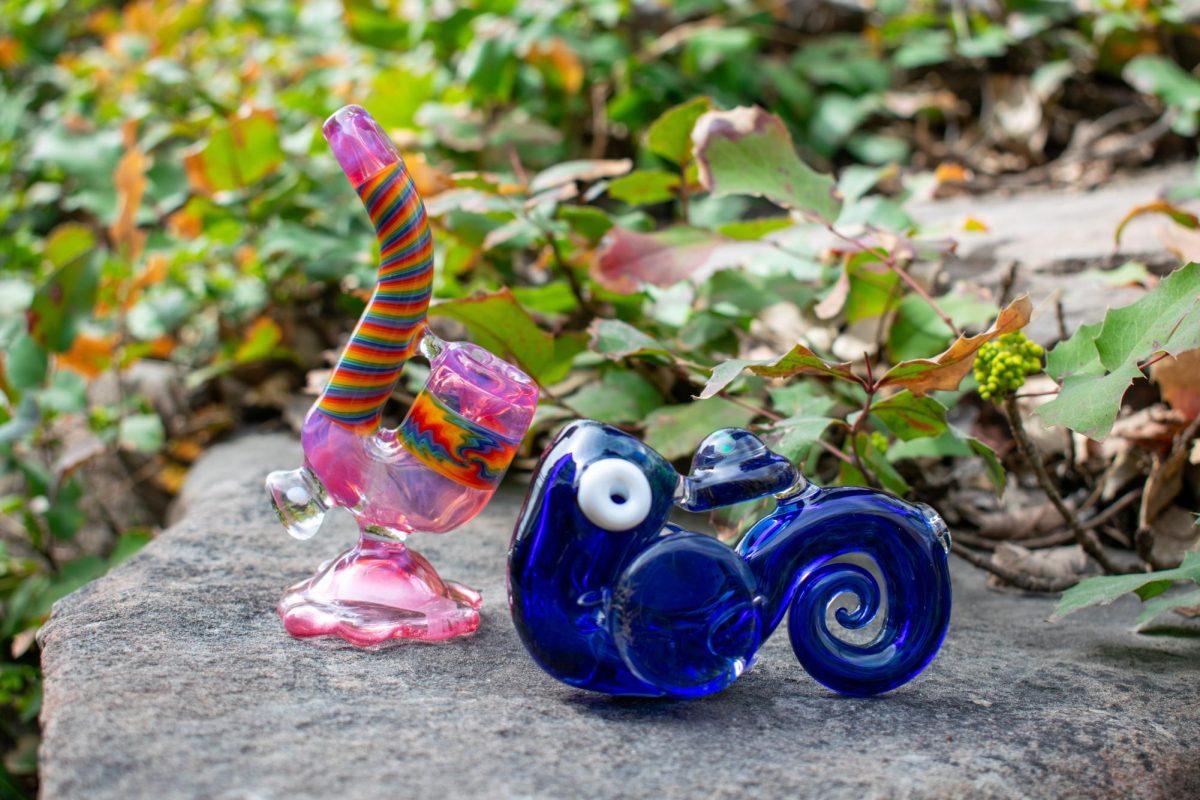If you’ve been to Happy Lucky’s Teahouse in Old Town or Front Range Village, you may have happened upon owners George Grossman and Kari Grady Grossman interacting with customers or helping out their staff: the Leafsters. The Grady Grossmans use their stores to encourage community connections through tea, but even before they came to Fort Collins, they were building communities all around the world.
The pair met for the first time while skiing in Breckenridge, Colorado, in November 1990. Kari was on her way to Los Angeles to become a screenwriter, and George had recently retired from public accounting. “I retired from public accounting with no benefits at age 26,” George said. “I was living in this apartment building and they had a little hibachi grill that we’d grill out on, so I started a fire and I burned all my ties and since then I have never worn a tie.”
“Not even to our wedding,” Kari said.

Kari graduated with a degree in communications from Syracuse University and decided to stop in Colorado for the ski season on her way to join the Hollywood scene. After a bit of time in the mountains, however, Kari’s plans changed. “Colorado just kind of sunk in and wasn’t going to let me go. Who wants to go to southern California when you can hang in the mountains of Colorado?” said Kari.
The couples’ love for exploring and the outdoors is evident from their very first date in the summer of 1991. “I was going to do a bike trip to Alaska, and I said, ‘Do you want to come with me?’” George recalled. “And I said ‘where do I buy a bike?’” Kari chimed in.
George and Kari continued to ski in Colorado in the winter and explore Alaska in the summer for a couple of years before they settled in Jackson Hole, Wyoming, to start their first business: The Great Outdoors Photography Company. With a history of working as photographers on the slopes of the Breckenridge Ski Resort, the Grady Grossmans became well-known wildlife photographers, before eventually selling the business to their partner.
In 1998, the Grady Grossmans started the Grizzly Moon Gallery in Dubois, Wyoming, and Kari took on another exciting career opportunity. “About that time, I started working as a correspondent for discovery.com, which was the online portion of the Discovery Channel that was doing very cutting edge, original online content before there were blogs,” Kari said. “They were long, multi-day assignments … I followed a rookie musher across Alaska doing the Iditarod…. And then the crème de la crème was I went to Everest in 2002.”
Kari covered the ascent of the first American women’s team to attempt to climb Mount Everest, and though only her photographer summitted, the coverage was very well received. “She’s humble, but they estimated a million people were reading the articles and waiting patiently to see how they did,” George said.
The Grady Grossmans adopted their son, Grady, from Cambodia in 2001—shortly before Kari’s trip to Everest—and adopted their daughter, Shanti, from India in 2006. “Basically, I had a 1-year-old, or almost 2-year-old at that point, and I was leaving for a two-month long expedition at the ends of the Earth, or the top of the Earth, in this case,” Kari said. “Here I worked so hard to get to the top of the career path I was looking for and I don’t want to be here. It’s a lifestyle that’s not (really) conducive, not only to a family, but also community. And, I’m a community person.”
Education encourages growth in Cambodia
In the years after adopting Grady, the Grady Grossmans formed Sustainable Schools International, a non-profit organization supporting education in Cambodia. Sustainable Schools now supports 2,771 students a year, grades one through nine, but it started in 2001 with a simple donation. “When we were adopting our son from Cambodia, we wanted to do something to give back to his birth country, so we raised $15,000 and donated that to build a traditional five-room schoolhouse,” George said.
Two years after making their initial donation, the Grady Grossmans returned to Cambodia to find the schoolhouse mostly abandoned. “I went back and actually went to this place that was very remote when it was built and met the people, and…in two of those five classrooms rice was being stored because they didn’t have teachers, and I learned something from that,” Kari said. “The government didn’t have money to run a school here before a school was built, why would we think that the government can now supply everything that goes on inside, such as teachers.”
According to the Sustainable Schools International About Us page, “During the occupation of the communist regime known as the Khmer Rouge in the late 1970s, Cambodia was ravaged by genocide. Anyone considered to be an intellectual was hunted down, leaving Cambodian culture in ruins and the educational system in disarray.” The after-effects of this period of genocide in Cambodia were what the Grady Grossmans witnessed when they visited the schoolhouse. In order to help fund safe housing and food for the teachers hired to work at the school—who, at the time, were paid only $9 a month to teach six days a week—the Grady Grossmans started a small fund through their friends.
Kari was also doing research for a book she was writing about the history of Cambodia and the story of adopting Grady. Her book “Bones That Float” was published in 2007 and won multiple awards in 2008, including the Peacemaker of the Year Award and the Nautilus Book Awards Gold Award for a memoir. “I had published my book and all of a sudden I had an opportunity to raise a lot more money because it was a well-received book, and in front of audiences, I would go to speak and I would ask them to support, and they did,” Kari said. “So, all of a sudden, I had a little pot of money to start an organization, and I started Sustainable Schools with the intention of figuring out how to sustain that one school without us eventually.”

The Grady Grossmans built goals for the organization based on the needs demonstrated by the community. “We started with things like teacher housing … making it safe and livable for teachers so that they had enough support so that they could actually do the job that we started,” Kari said. “Then we tried to figure out how do we help the community, the local community, take this over.”
Eventually, the Grady Grossmans came to the conclusion that leadership from within the community was the best way to encourage community development, so they created a high school and college program to help students who finished ninth grade continue their education. “We started a residential program, and they went and had a place to live in the city to go to schools in the city which had better attendance of teachers,” Kari said. “Then, we really nurtured new leaders, so they were participating in leadership programs, the self-development program—overcoming a lot of trauma of their own childhood—and learning how to be a leader with integrity.”
In 2016, the Grady Grossmans both came off the board of directors for Sustainable Schools International and Kari passed her position on to a new executive director in anticipation of opening a second teahouse in Front Range Village. “Now the entire operation in Cambodia is led by graduates, and several of them have started businesses that are supporting the school,” Kari said. “One has a microloan program that fully funds the school supplies for seven schools in their district. Another one has started a medical clinic; she’s a nurse. The first bachelor’s degree teacher is teaching in one of the schools, and then there’s an agriculture project now so that the organization actually owns a piece of land in the center of the village where kids who are participating in the leadership program go and do service projects.”
Sustainable Schools International currently supports eight rural schools and grants 30 higher education scholarships every year. “At this point, they’re still a donor-funded organization for the staff and programs of the organization, but at least the part that happens in the village where they’re from is self-funded,” Kari said.
Small businesses build community in Fort Collins
The Grady Grossmans moved to Fort Collins in 2008 because the proximity to Denver International Airport made Kari’s travels to Cambodia easier. They were also seeking good schools for their children, and opportunities for them to interact with the cultures of their birth countries. “In the north part of Denver, there’s a Cambodian community that we were already in relationships with, and here in Fort Collins there’s actually quite a sizeable India community—about 300 or 400 families,” Kari said. “My daughter has grown up with Indian families around her and she takes Bharatanatyam and Bollywood dance from India teachers, so the diversity is here in Fort Collins if you look for it.”
A year after moving to Fort Collins, the Grady Grossmans decided to open Happy Lucky’s Teahouse. “I think that we didn’t know so much about Fort Collins as a community until we lived here for a while,” said Kari. “Then we were like, ‘Yeah, we want to open a business here because we liked the shop local values’. The shop local culture that we have here is really conducive to opening a small mom-and-pop shop.”

When Happy Lucky’s first opened, tea wasn’t the primary focus of the Grady Grossmans. The store began as a place to sell silk scarves that Kari brought back with her from trips to Cambodia. They sold the scarves to raise funds before Kari’s book launched and become a good alternate source of revenue for Sustainable Schools International.
In the process of finding a platform to sell scarves, the Grady Grossmans decided to open a teahouse based around community. “We opened Happy Lucky’s with the purposeful intent of having a place for community connection over pots of tea,” Kari said. “We decided at the time that we like tea; we have friends who like tea, there’s no proper tea shop in Fort Collins. So, the front was really silk goods and the back area became tea.”
It soon became obvious that the Grady Grossmans and their friends aren’t the only people in Fort Collins who like tea. “The customers quickly showed us that tea was what they were interested in, and there were a lot of people in Fort Collins who felt the same way (as us): they like tea and there wasn’t a tea shop,” Kari said. “So, after that first Christmas, we switched it. The tea went in the front, and the silk came to the back.”
“We have 200 loose leaf teas now, which is the largest selection in the state of Colorado,” George said. “We started with 70, and I thought we might get to about 120 and that would be it, but then we couldn’t stop. It’s a great addiction.”
The Grady Grossmans are also passionate about promoting local, small businesses and encourage business collaboration. In 2013, George received the Business Innovator of the Year Award from the City of Fort Collins for creating the Foodie Walk, which takes place in Old Town every third Friday of the month from 5-8:00 p.m.
“Foodies are people that want to know where their food comes from, they want to know the story behind it,” George said. “Part of the reason for starting the Foodie Walk and partnering with all these businesses that have great stories and know where their sourcing comes from and want to share that story. It’s partly the experience and partly the flavors and the tastings.”
Happy Lucky’s Teahouse has also recently collaborated with Sweet Sinsations, a coffee shop in the Lory Student Center of Colorado State University. According to Payton Nostdahl, the retail coffee manager for CSU, Sweet Sinsations started offering eight different Happy Lucky’s loose-leaf teas in January, as well as their Japan Matcha tea in the 12-ounce size.

When it comes to supporting local business, the Grady Grossmans believe all levels of the community need to be actively involved. “The economic sustainability of small businesses in Fort Collins depends on two things: The local community shopping local, and the local government somehow getting a grip on housing, health care and childcare,” Kari said. “Affording housing is key if you want to have any kind of a downtown or local business community because where are the people going to live who have to work.”
“If you shop local, when you love on Fort Collins, you’re actually helping keep your neighbor’s job … that’s like the next level of community is branching out. We need to support each other and not buy so much stuff online, and we try to make it a personal goal to not shop on Amazon and to do all of our holiday shopping (local),” George said.
George summed up his goal for Happy Lucky’s future in a few words: “World tea domination!”. “One of our big plans this year is that we want to be everywhere. Wherever you go. So not only at CSU and Sweet Sinsations, but we’re also at the Elizabeth Hotel, where at The Kitchen, we’re at J’s Bistro.”
The Tea About Town page on the Happy Lucky’s website lists all the places where Happy Lucky’s tea is currently offered. Right now, 30 local business collaborations are listed. According to George, Happy Lucky’s is also planning to release a line of chocolate teas in 2019.
The Happy Lucky’s “Tea Lovers Club” is currently at about 19,000 members, according to George and Kari. George said he was proud of the loving community that has developed around Happy Lucky’s and good tea.
“That whole goal that we started out with of building a place of community where people will sit around a pot of tea and share their lives, share their stories. That’s happened,” George said. “It happens at both our teahouses. And we’ve also built a community with our staff, the Leafsters are a part of all of that…. I think that’s the thing I’m most proud of. That part of what we started out to do happened and it happens every day.”

